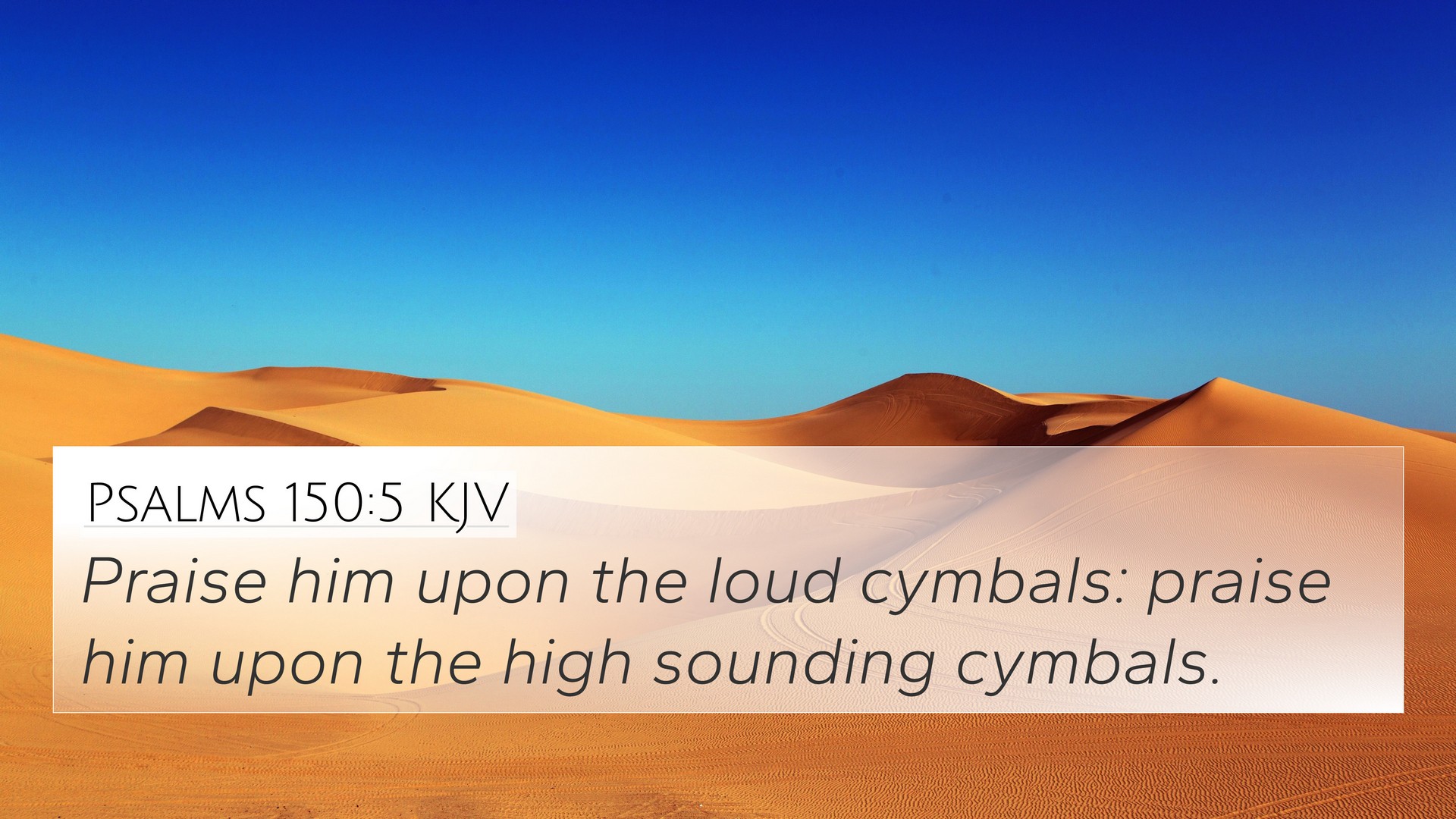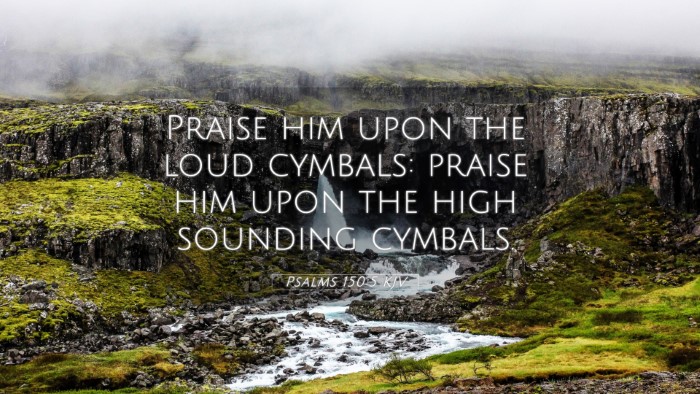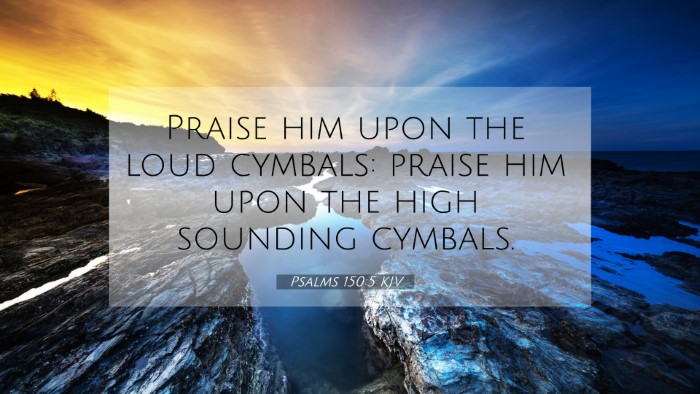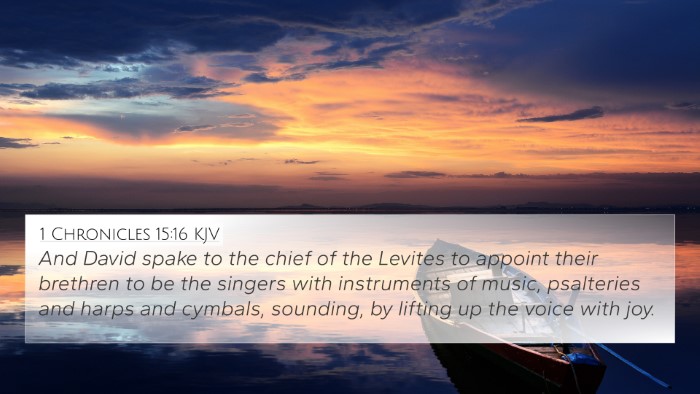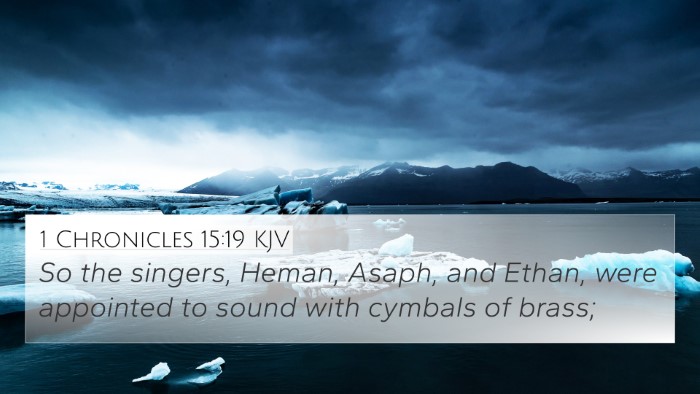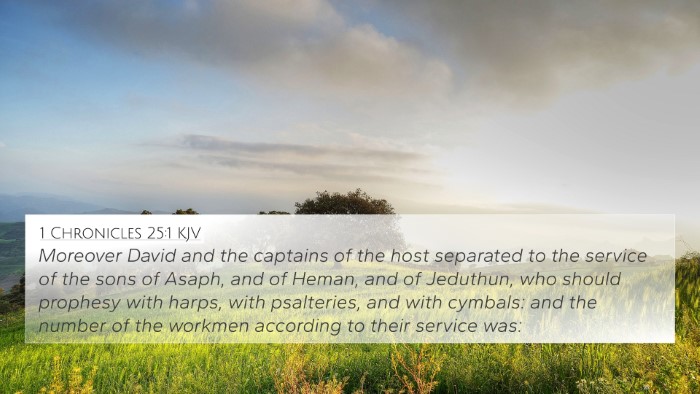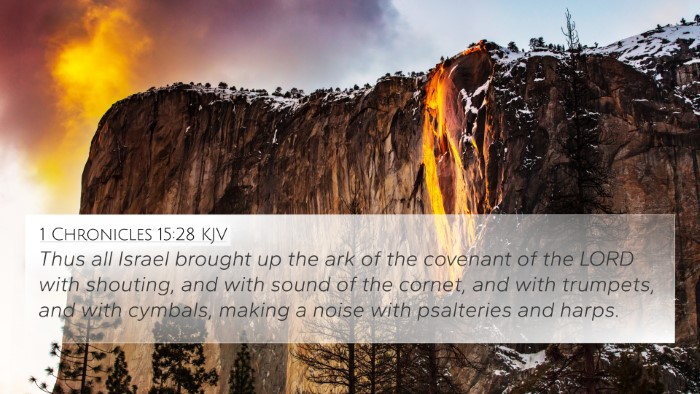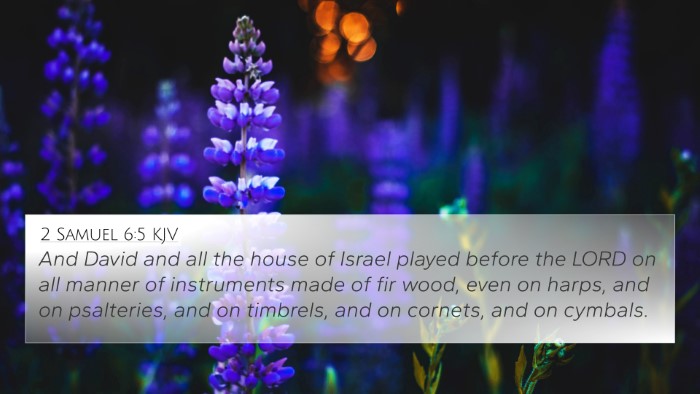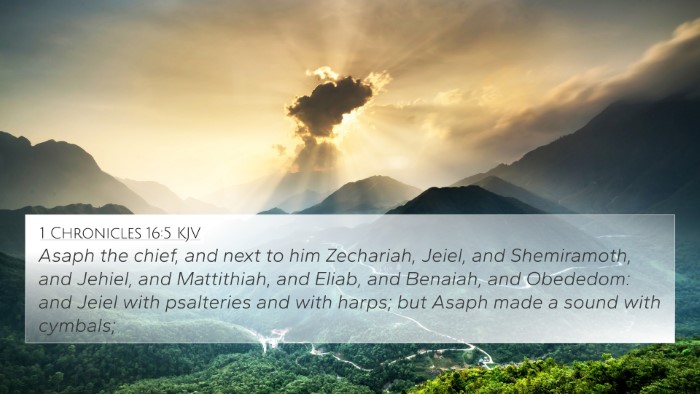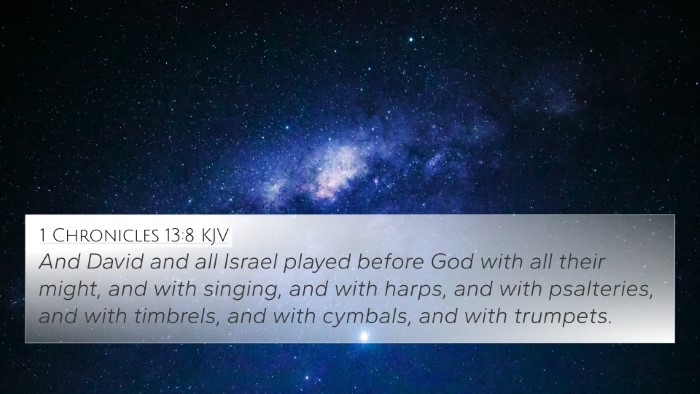Understanding Psalms 150:5
Psalms 150:5 states, "Praise him upon the loud cymbals: praise him upon the high sounding cymbals." This verse encapsulates the essence of joyous and exuberant worship through music, encouraging believers to utilize instruments in adoration of God.
Overview
This verse serves as a powerful exhortation to not only praise God but to do so with passionate intensity and through the use of musical instruments, which in biblical tradition signifies celebration and reverence.
Commentary Insights
-
Matthew Henry's Commentary:
Henry emphasizes the command to praise God using every means possible, with particular mention of musical instruments. He posits that the cymbals represent the louder, more exuberant forms of worship, reflecting not only joy but also a communal aspect of praise. The focus is on the active participation of the congregation in worship.
-
Albert Barnes' Notes:
Barnes remarks that the use of loud cymbals symbolizes a declaration of praise that cannot be ignored. He notes that music in worship serves to uplift and unify the community, bringing forth an atmosphere of reverence and joy meant to honor God.
-
Adam Clarke's Commentary:
Clarke highlights the importance of expressing joy through music, suggesting that cymbals, being loud and attention-catching, signify the height of expressive worship. He indicates this is not merely technical music but is deeply rooted in heartfelt praise and the overflow of joy in the believer’s heart.
Bible Verse Cross-References
To enrich our understanding of Psalms 150:5, we can explore several related scriptures that illustrate the theme of worship through music and praise:
- Psalms 150:3-4 - These verses invite the use of various instruments to praise God, reinforcing the notion that all creation should participate in worship.
- 1 Chronicles 16:5 - Describes the roles of different musicians in temple worship, including those who played cymbals.
- Psalm 149:3 - Calls for the praising of God with dance and instruments, showing a commitment to joyful expressions of faith.
- Psalm 33:2 - Encourages playing skillfully on instruments as part of praising the Lord, aligning musical talent with worship.
- Ephesians 5:19 - Speaks about singing and making music in the heart to the Lord, connecting the New Testament practices with Old Testament worship.
- Colossians 3:16 - Advises believers to let the word of Christ dwell in them richly as they teach and admonish one another with psalms, hymns, and spiritual songs.
- Hebrews 13:15 - Points out the importance of the fruit of lips that openly profess His name, showcasing the significance of verbal praise.
Connecting Themes and Insights
The act of praising God with instruments in Psalms 150:5 establishes a thematic connection with the wider biblical narrative that exalts worship as an essential aspect of the believer's life. We can see that:
- Emphasis on Community: Many verses highlight the significance of collective worship, suggesting that praise is not only an individual act but also a community experience.
- Role of Joy: The joyful noise made through cymbals signifies the exuberance that should characterize worship.
- Inclusivity of Instruments: The variety of instruments mentioned across different passages illustrates God's appreciation for diverse forms of worship.
- Heart of Worship: The emphasis on the internal attitude of worship, as per New Testament verses, complements the external expressions seen in the Psalms.
How This Verse Relates to Biblical Texts
Psalms 150:5 invites us to explore the various ways scripture interlinks the themes of worship, music, and community in praising God. Understanding these connections enriches our spiritual practice and appreciation of the role music plays in our faith:
- By engaging in comparative Bible verse analysis, we see how Old Testament praise anticipates New Testament expressions of worship.
- Utilizing a Bible cross-reference guide can help in tracing these connections extensively.
- Thematic studies reveal how worship in the Psalms lays a foundation for the worship witnessed in the early church.
Practical Applications
As believers reflect on Psalms 150:5, several practical applications emerge:
- Encourage participation in music ministry, recognizing it as a vital part of congregational worship.
- Foster an environment where creative expressions of worship can thrive, whether through traditional hymns or contemporary worship styles.
- Promote a heart of joyful worship in both public gatherings and private devotion, allowing music to uplift and strengthen faith.
- Utilize tools for Bible cross-referencing to deepen understanding of worship across the scriptures.
Conclusion
In summary, Psalms 150:5 serves as a profound reminder of the importance of exuberant and communal worship. Through the diligent exploration of cross-references and thematic connections within the Scriptures, believers can enrich their understanding of worship and its expressions, leading to a more vibrant faith.
